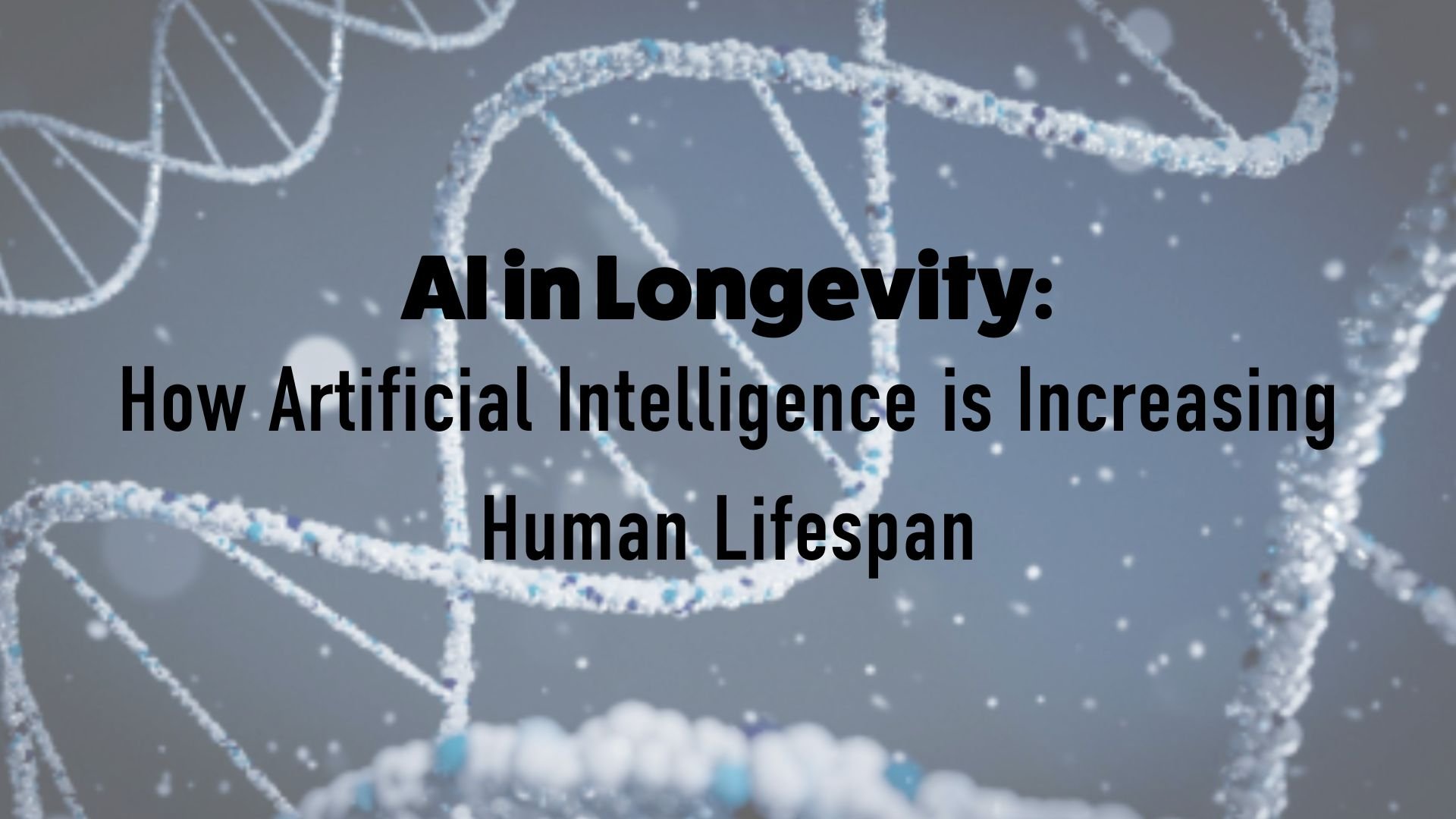AI in Longevity: How Artificial Intelligence is Increasing Human Lifespan
Artificial Intelligence is rapidly changing the landscape of many industries, including healthcare. The use of AI in longevity research is a promising and intriguing area of development that could revolutionize the way we approach age-related diseases.
In this blog post, we are exploring the intersection of AI and healthcare, and discuss how technology is being used to improve both human lifespan and healthspan.
What is lifespan?
First of all, it’s important to know the difference between lifespan and healthspan. Simply put, lifespan is how long you live while healthspan is the quality of life.
Lifespan therefore is the period between an organism's birth and its death. The lifespan of an organism can vary greatly depending on the species, environmental factors, and other biological and genetic factors. For example, some insects have a lifespan of only a few days, while some tortoises can live for over 100 years. In humans, the current average lifespan is around 72 years, but this can vary depending on factors such as genetics, lifestyle choices, and access to healthcare.
In recent years, AI has been increasingly used in biomedical research, particularly in the areas of drug discovery, genomics, and precision medicine. Researchers are leveraging AI to accelerate the pace of research and make it more efficient. The ability to analyze large amounts of data quickly and accurately is particularly valuable in the field of longevity, where understanding the complex mechanisms of ageing and age-related diseases is critical.
How can AI increase human longevity?
There are a growing number of ways artificial intelligence is playing a role in the field of longevity science. Here are some use cases below:
Drug Discovery
One promising area of research is the use of AI to identify new drug targets for age-related diseases such as Alzheimer's, cancer, and heart disease. AI algorithms can analyze vast amounts of data from biological samples, clinical trials, and scientific publications to identify potential targets that were previously unknown. This approach could help researchers identify new treatments that could delay or prevent the onset of age-related diseases.
Personalized Medicine
Another area of research is the use of AI to develop personalized medicine for age-related diseases. AI algorithms can analyze patient data, including genomic and other biomarker data, to develop personalized treatment plans that are tailored to each patient's specific needs. This approach could help doctors develop more effective treatments that target the underlying mechanisms of ageing, rather than just treating the symptoms.
Early Detection
In addition to drug discovery and personalized medicine, AI is also being used to improve diagnostics and early detection of age-related diseases. For example, AI algorithms can analyze medical images such as CT scans, MRIs, and X-rays to identify early signs of disease that may not be visible to the human eye. This approach could help doctors detect age-related diseases earlier, when they are more treatable.
The Future of AI in Longevity
In closing, while much of the research in longevity science is still in early stages - the use of AI in longevity research holds great promise for advancing our understanding of aging and age-related diseases. While there are still many challenges to consider, including regulatory and ethical considerations, the potential benefits are exciting. As AI continues to evolve and improve, it is likely that we will see even more breakthroughs in this field in the coming years.
About Inspirit AI
AI Scholars Live Online is a 10 session (25-hour) program that exposes high school students to fundamental AI concepts and guides them to build a socially impactful project. Taught by our team of graduate students from Stanford, MIT, and more, students receive a personalized learning experience in small groups with a student-teacher ratio of 5:1.

